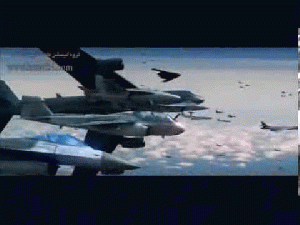Reprinted from Jonathan Cook's Blog
Israel has good reason to fear that the Lebanese militia Hizballah and Iran's Revolutionary Guard will seek dramatic revenge for the killing of 12 senior figures from the two organizations in an air strike in Syria on Sunday.
Israel's concerns were underscored on Wednesday by the decision of its military chief of staff, Benny Gantz, to cancel a trip to meet his European counterparts, as the Israeli army remained on high alert.
Earlier, on Monday, Israel moved an Iron Dome anti-missile battery to the northern border, in case of rocket fire from Hizballah. That is precisely what Hizbullah leader Hassan Nasrallah had vowed only last week if Israel continued to launch attacks on Syrian soil.
"We consider that any strike against Syria is a strike against the whole of the resistance axis, not just against Syria," he said, adding that he had many long-range Iranian rockets that could reach deep into the Galilee.
General Ali Jafari, commander of the Revolutionary Guard, echoed that warning on Tuesday, saying Israel should wait for "devastating thunderbolts", and that Israel's air strike had created "a new beginning point for the imminent collapse of the Zionist regime."
Rhetoric aside, however, Hizballah and Iran are likely to try to avoid the inevitable direct military confrontation with Israel that would follow a decision to fire some of Hizballah's thousands of rockets into the Galilee.
That certainly appears to have been Israel's calculation in launching the attack.
Hizballah and Iran -- both stretched militarily in Syria as they try to bolster Bashar al-Assad's regime from the threat posed by various opposition and extremist groups -- have no interest in opening an additional front, this time with Israel.
In addition, Iran is suffering economically from a US-Saudi engineered fall in oil prices and cannot risk an intensification of sanctions -- currently being advanced in the US Congress -- by being blamed for a major escalation of hostilities with Israel.
Likewise, Iran will be averse to falling into a trap set by Israel, aggravating tensions with western powers as Tehran tries to negotiate a deal with them on its nuclear program. Israel would be only too delighted to see the talks collapse.
And Iran has invested heavily in arming Hizballah with rockets and missiles to provide a deterrent against Israel launching a strike on Iran. Using that arsenal now, as one Israeli analyst surmised, would be "wasting [it] on border skirmishes that have no strategic significance for Iran."
Hizballah, meanwhile, will be reluctant to fire rockets for fear of weakening its domestic political position. It has no popular mandate -- explicit or implicit -- to drag Lebanon into another devastating confrontation with Israel, like the one in 2006, in retaliation for military losses it sustained on Syrian rather than Lebanese soil.
Boutros Harb, Lebanon's telecoms minister, warned as much: "It's not in anyone's interest for a front to be opened [with Israel] and for Lebanon to enter a war."
More likely Iran and Hizballah will seek revenge at a later time, either by attacking Israel from Syria or by hitting a high-level target abroad. Such a strike could itself escalate into a wider conflict, as occurred both in Lebanon in 2006 and in Gaza with Hamas last summer.
Power vacuumIt is not surprising that Quneitra province, the area of southern Syria next to the Israeli-occupied Golan Heights where Israel's air strike occurred, has become a flashpoint. Israel, on the one hand, and Hizballah and Iran, on the other, have been sucked into the relative power vacuum created there since the Syrian army lost its grip on the territory last summer.
(Note: You can view every article as one long page if you sign up as an Advocate Member, or higher).






